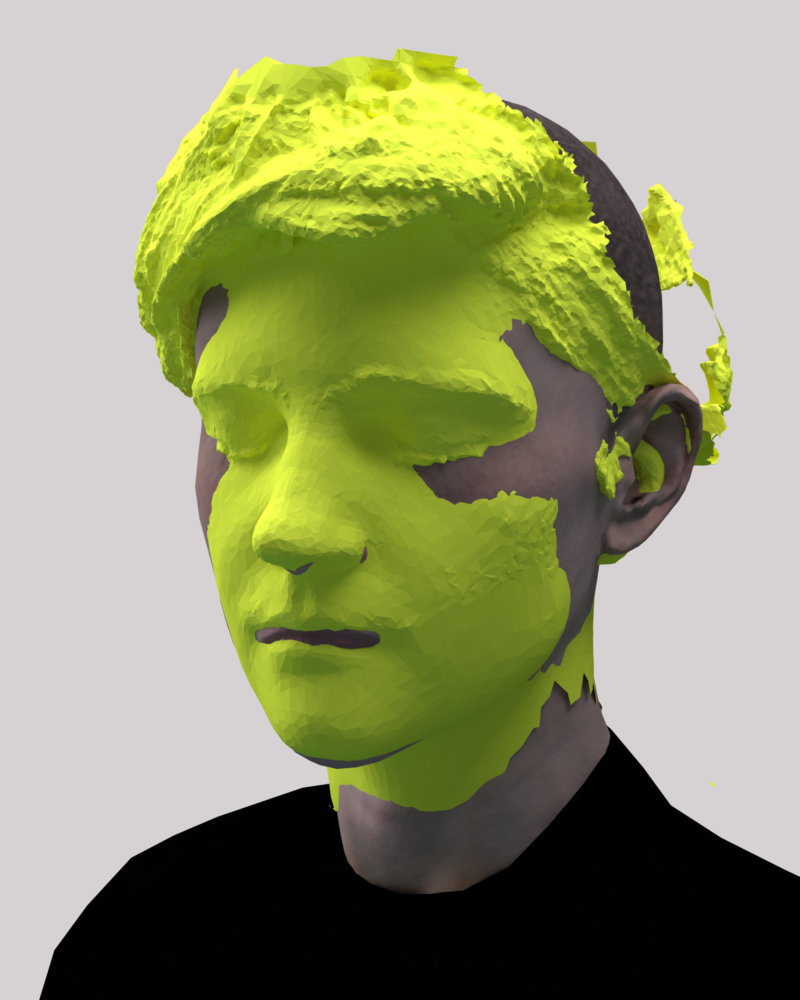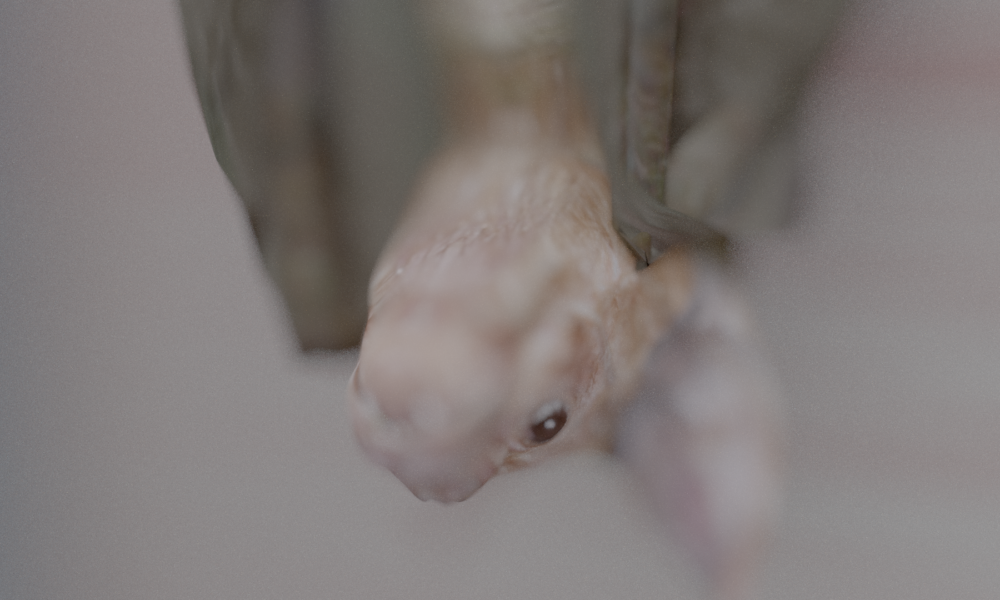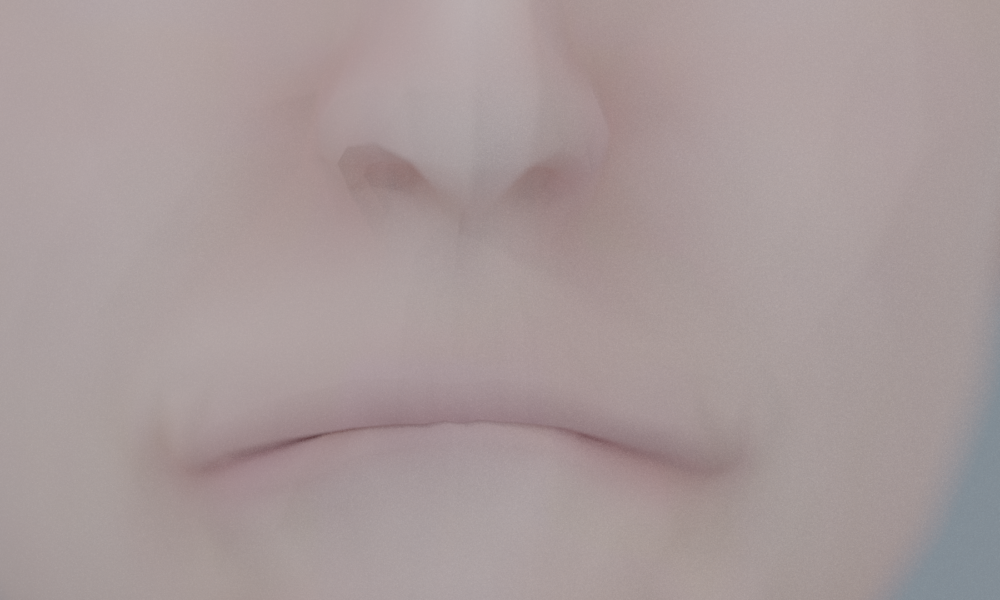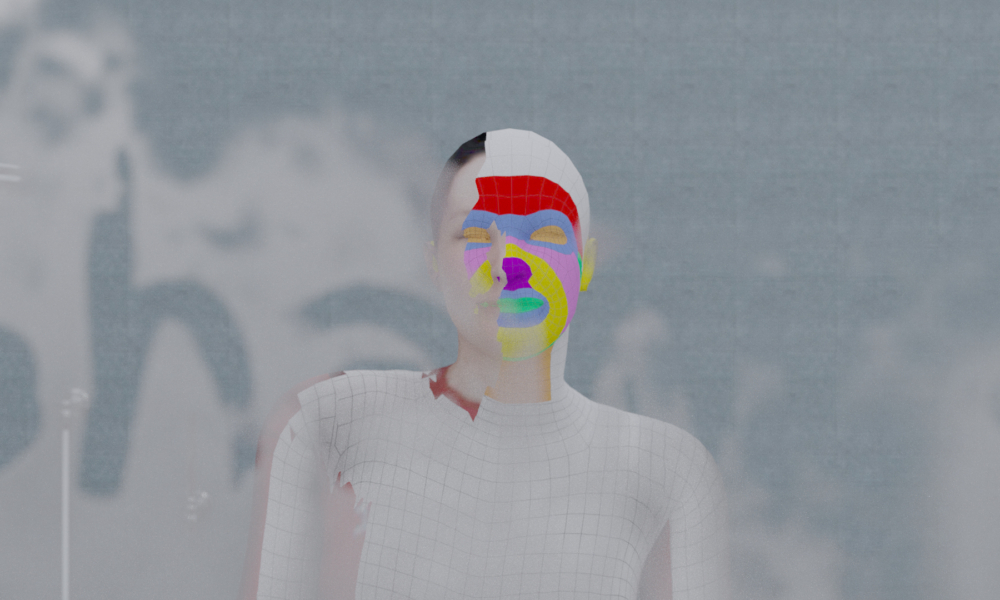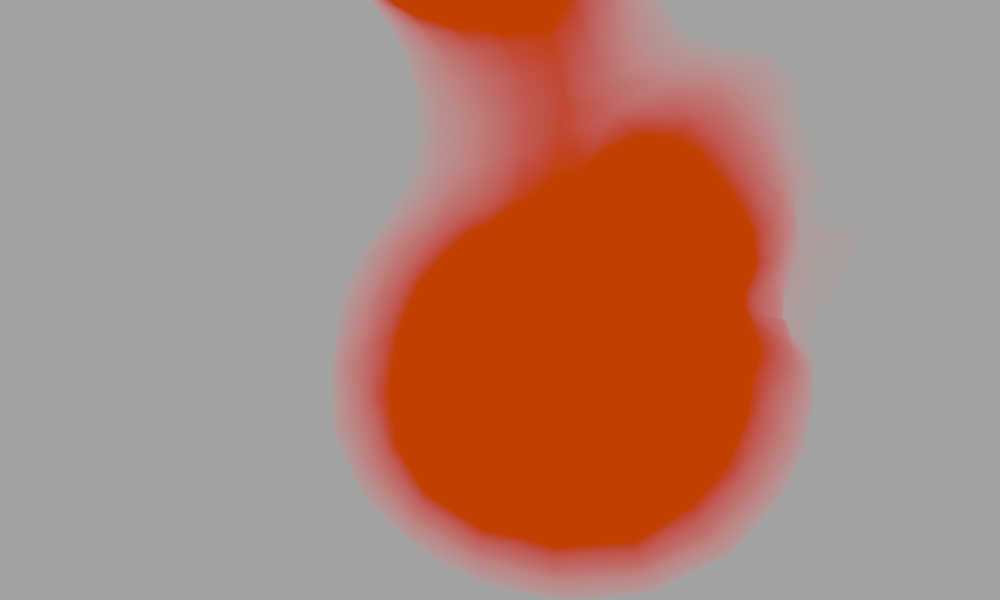“Our own experience provides the basic material for our perception of the world, which is therefore limited,” says the bat in the short film Elephant Juice. Inspired by philosopher Thomas Nagel’s seminal essay ‘What Is It Like To Be a Bat?’, the film’s narrator paraphrases this passage to reflect on the probability of human built computer vision systems on day surpassing their maker’s subjective view of the world.
Elephant Juice takes place in a bathroom and follows an individual preparing for an upcoming automated job interview. In this novel recruiting process, interviews are held in front of a candidate’s own web camera. Once recorded, the video file is analysed by computer vision software to evaluate the applicant’s facial expressions to determine if they have the desired qualities such as trustworthiness, compatibility and diligence. This evaluation translates facial expressions into emotions based on a mapping of muscle movements. The Facial Action Coding System (FACS) proposed by Paul Ekman and Wallace Friesen in 1978 is widely referred to as underlying parameter for such applications. It divides the human face into action zones to which emotions are assigned. Since its introduction in the 70’s FACS has gained popularity in the fields of computer animation, public measurement tools, police profiling, and recruitement.
With the commodification and categorisation of emotions – a deeply personal and delicate matter – it is crucial to challenge the limits of objectivity and the risks of globally adapted perception systems. By interpreting the world through a lens of seemingly objective computer vision, our intimate realities are at stake.
The words “Elephant Juice” are a common misreading of “I Love You” by lip-reading software, aptly capturing the narrow room for error between the deeply emotional and the absurdly poetic.
HD Video, 3D Animation, 8’ 45’’, stereo sound, 2020
Research, Script & Animation: Simone C Niquille / Music: Jeff Witscher (after Whitney Houston & Dolly Parton ‘I Will Always Love You’) / Voice Over: Kiara K / Voice Emotion Sterilization: Eric Frye / FACS Animation Script: François Zajéga / Avatar: SMPL Body, Max Planck Institute for Intelligent Systems / Bathroom 4: SceneNet-RGBD, Dyson Robotics Lab at Imperial College London / With excerpts of the Ryerson Audio Visual Database Of Emotional Speech & Song / Featuring paraphrased excerpts of Thomas Nagel’s 1974 essay on consciousness, the limits of objectivity and imagination ‘What Is It Like To Be a Bat?’, reinterpreted for the age of computer vision systems / Commissioned by HeK (House of Electronic Arts Basel) and MU Hybrid Art House with the support of La Becque.
Simone C Niquille
Simone C Niquille is a designer and researcher based in Amsterdam. Her practice Technoflesh investigates the representation of identity and the digitisation of biomass in the networked space of appearance. Her work has been exhibited internationally, most recently at HeK-Haus der Elektronischen Künste (2020), Fotomuseum Winterthur (2019), and La Gaité Lyrique (2019). She has published articles in Volume Magazine, AD Architecture, and e-flux.
Niquille is Chief Information Officer at the Design Academy Eindhoven. In 2016, she was Research Fellow of Het Nieuwe Instituut Rotterdam and was a commissioned contributor to the Dutch Pavilion at the 2018 Venice Architecture Biennale. Niquille was recipient of the Pax Art Award 2020 and 2021/22 Mellon Researcher at the Canadian Center for Architecture. Currently she is exploring the architectural and bodily consequences of computer vision, researching artificial datasets used for training purposes.
